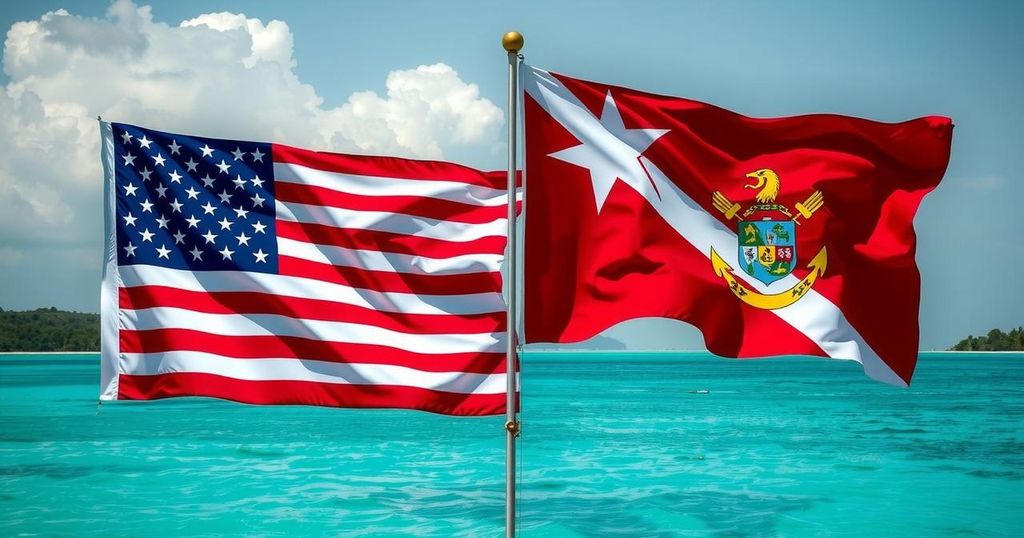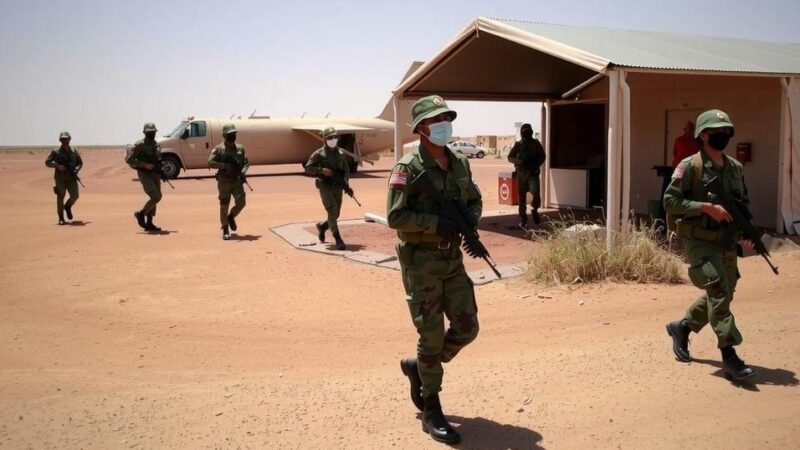The United States and Trinidad and Tobago have renewed military agreements aimed at enhancing defense cooperation. The revision of the Status of Forces Agreement (SOFA) has prompted controversy regarding potential U.S. troop deployments related to Venezuela. Prime Minister Keith Rowley has denied these claims, asserting Trinidad’s desire for peaceful regional relations. Amidst ongoing geopolitical tensions, the situation illustrates the complexities faced by Trinidad and Tobago in balancing domestic and international interests.
On December 10, 2024, the governments of the United States and Trinidad and Tobago formalized several military cooperation agreements, including a renewed Status of Forces Agreement (SOFA) aimed at enhancing the interoperability of their armed forces. The agreements were disclosed by the U.S. embassy in Trinidad, which highlighted that they signify unprecedented opportunities for defense collaboration, according to U.S. ambassador Candace Bond and Admiral Alvin Holsey of U.S. Southern Command.
Despite the positive remarks regarding these accords, they have sparked controversy. Reports from local media indicated that the revised SOFA may permit U.S. troop deployments in Trinidad should conflict arise in Venezuela, although such moves would still require Trinidadian approval. Prime Minister Keith Rowley denied these claims, asserting that Trinidad would not facilitate any military actions against Venezuela, a notion he termed “irresponsibility of the worst kind.”
Rowley criticized the newspaper’s interpretations of the new military agreements, emphasizing Trinidad and Tobago’s commitment to peace and its role in mediating regional tensions. He refrained from discussing specific details of the SOFA during the press conference but reiterated that Trinidad maintains amicable relations with both the United States and Venezuela.
In recent months, Trinidad and Venezuela had advanced joint offshore natural gas exploration projects, despite U.S. sanctions against the latter. The Rowley government is navigating these sanctions while promoting energy cooperation to enhance regional economic stability. As of now, there has been no response from the Venezuelan government regarding the SOFA or the troop deployment discussions. Furthermore, tensions regarding U.S. military presence in the Caribbean have heightened, underscored by Venezuela’s warnings related to American military activities in neighboring nations.
The renewed military accords between the United States and Trinidad and Tobago occur in a complex geopolitical climate characterized by heightened tensions in the Caribbean, especially concerning Venezuela. The SOFA originally established in 2007 serves to provide legal protections and operational advantages for U.S. military operations within Trinidad, and its recent amendments indicate a potential shift in the dynamics of regional military cooperation. This climate is further complicated by ongoing disputes in the region, such as the unresolved territory claims between Venezuela and Guyana, which have historical underpinnings and current implications for U.S. military strategy.
The recent renewal of military agreements between the United States and Trinidad and Tobago has created significant public discourse concerning the implications of potential U.S. military presence in the region, particularly linked to the situation in Venezuela. Prime Minister Keith Rowley’s firm denial of claims related to foreign troop deployments illustrates Trinidad and Tobago’s intention to uphold its sovereignty and commitment to regional peace. This situation reflects broader geopolitical tensions that merit careful observation as countries navigate their defense and foreign policy interests.
Original Source: venezuelanalysis.com







